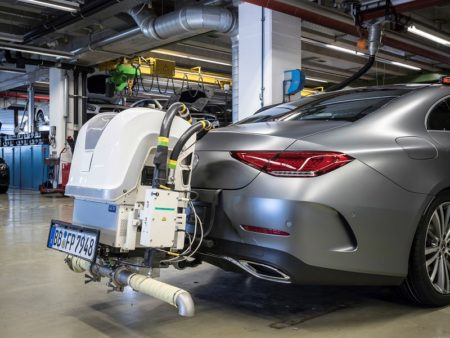CO2 rises growing for NEDC Correlated cars
Popular fleet segments including medium and large SUVs are being hit by the largest increases in CO2 under the new WLTP fuel economy cycle – and bigger hikes are on the cards, according to Jato.
The new cycle is designed to better replicate real-world driving conditions than the New European Drive Cycle (NEDC) it replaces and, as such, is expected to bring CO2 and fuel consumption rises.
Although tax bands for WLTP won’t be brought in until April 2020, manufacturers are already re-testing their model ranges for the new test cycle ahead of the September deadline – and these figures are being converted to an ‘NEDC Correlated’ figure.
Latest data from Jato shows that the gap between the genuine NEDC figures and the new NEDC Correlated ones is widening. Figures generated by the firm in April showed an average 8g/km uplift to NEDC Correlated figures – now, the test data, which is regarded as more robust as it includes increased vehicle numbers, shows a difference of 9.6g/km.
Jato added that this could increase further as the majority of cars currently re-homologated are within the A (city cars) and B (supermini) segments – which have seen some of the smallest increases of 6.6g/km and 8.1g/km respectively. It’s in some of the more popular fleet segments where the largest increases are being seen, such as medium SUVs (up 16.7g/km), large SUVs (up 14.0g/km) and D2 upper-medium+ (up 13.1g/km). The largest increase is seen in the luxury segment, where NEDC Correlated CO2 values are up 18.3g/km.
For fleets and drivers, the changes will bring increased taxation charges, with continued uncertainty about the longer-term picture for taxation, which is already prompting changes for fleets. Arval warned some six weeks ago that WLTP ‘limbo’ is prompting fleets to extend contracts while Meridian Vehicle Solutions has said fleets are turning to medium-term rental as a means to manage current uncertainty over WLTP and company car taxation.
Jato has also warned that the process of concluding the re-homologation of all vehicles could take longer than expected. Currently only 20% (by volume) of model/versions have been published as being re-homologated under WLTP test cycles. In response, carmakers including VW have warned about having to scale back production of some models as they face a backlog of vehicles that need to be tested in time for the September deadline. As such, Zenith has announced in the last month that it has updated its quoting platform in a short-term move to take off all cars that are not yet WLTP-approved.
Jato has also warned of the impact on the car industry of the widening discrepancy between existing NEDC data and NEDC Correlated values, which along with a shift towards petrol vehicles could see manufacturers face significant penalties for non-compliance with current EU CO2 fleet targets. The firm’s data indicates that CO2 values could reach 130g/km in 2019; 12g/km increase on the 118g/km currently seen in Europe and above the target set by the EU, and with further risks ahead for 2020 and 2021 when the target will move to 95g/km.
A spokesperson for Jato commented: “Following our analysis of a sample of the vehicles currently re-homologated, if this is extrapolated to the whole fleet, CO2 values could reach 130g/km in 2019, which is a significant 12g/km increase on the 118g/km currently seen in Europe and above the target set by the EU. As a result, car manufacturers could face a penalty of €95 per gram over the target per vehicles sold. This could amount to a huge financial penalty for the European car industry who registered more than 16 million vehicles in 2017.













